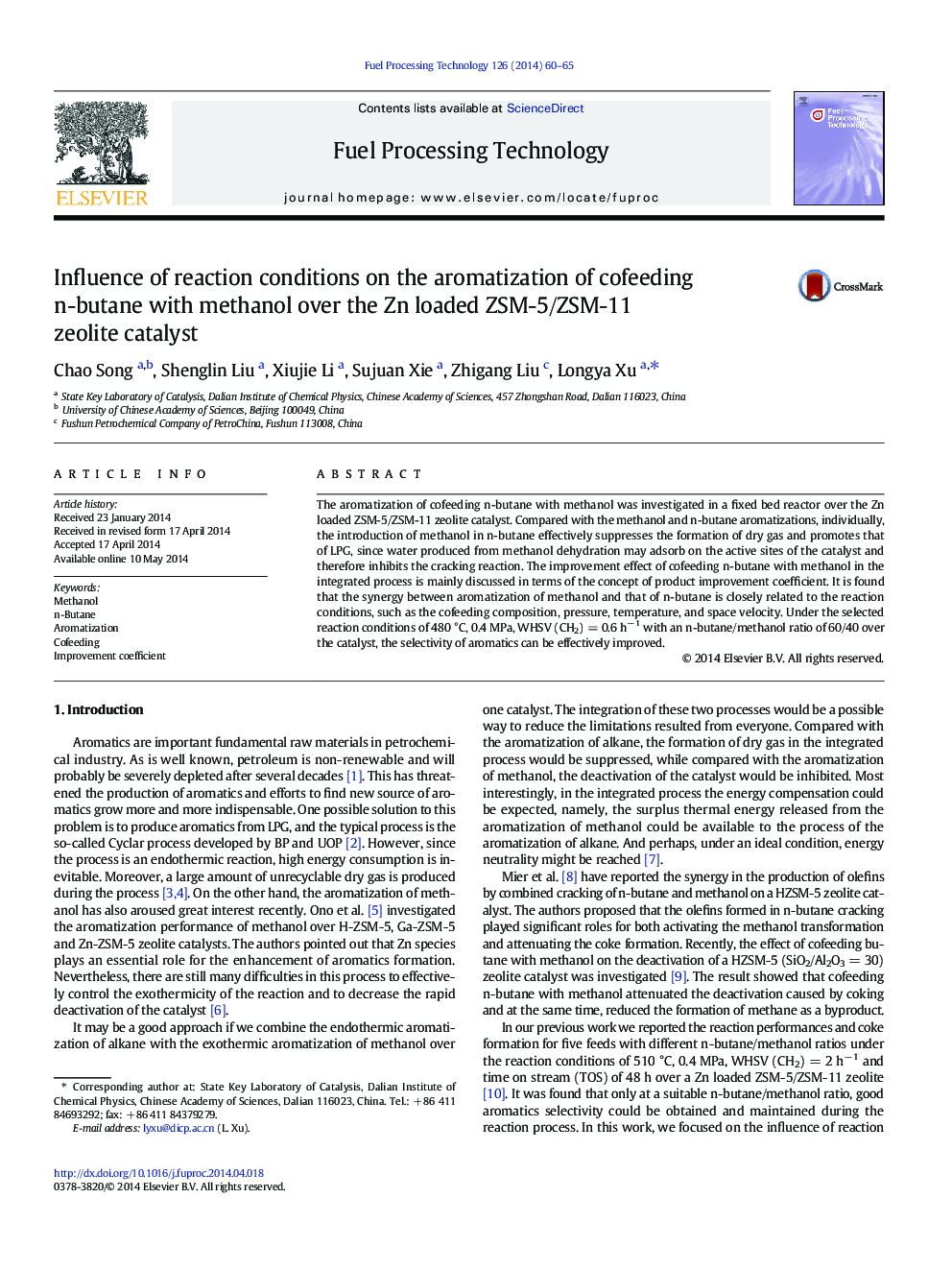| Article ID | Journal | Published Year | Pages | File Type |
|---|---|---|---|---|
| 209701 | Fuel Processing Technology | 2014 | 6 Pages |
•Cofeeding n-butane with methanol suppresses the dry gas formation.•The improvement effect depends on cofeeding composition and reaction conditions.•Only under suitable conditions, the selectivity of aromatics can be improved.
The aromatization of cofeeding n-butane with methanol was investigated in a fixed bed reactor over the Zn loaded ZSM-5/ZSM-11 zeolite catalyst. Compared with the methanol and n-butane aromatizations, individually, the introduction of methanol in n-butane effectively suppresses the formation of dry gas and promotes that of LPG, since water produced from methanol dehydration may adsorb on the active sites of the catalyst and therefore inhibits the cracking reaction. The improvement effect of cofeeding n-butane with methanol in the integrated process is mainly discussed in terms of the concept of product improvement coefficient. It is found that the synergy between aromatization of methanol and that of n-butane is closely related to the reaction conditions, such as the cofeeding composition, pressure, temperature, and space velocity. Under the selected reaction conditions of 480 °C, 0.4 MPa, WHSV (CH2) = 0.6 h− 1 with an n-butane/methanol ratio of 60/40 over the catalyst, the selectivity of aromatics can be effectively improved.
